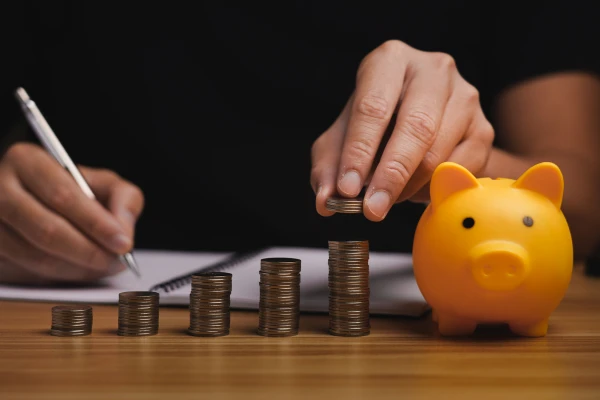How Credit Cards Work Understand Everything Before Using Them
Advertisements
To know how credit card works is essential to make more informed financial decisions and avoid unnecessary debt.
Many people use this resource daily, but few understand its logic, its benefits and the risks involved in irresponsible use.
Advertisements
In this comprehensive article, you will discover how the credit card operates, what are the main terms, deadlines and fees and how to use it strategically to improve your financial life.
What is a Credit Card?
A credit card is a financial tool provided by banks and financial institutions that allows make purchases, pay bills or hire services even without having a balance at the time.
Instead of using the money available in the account, the bank lends the purchase amount and the user agrees to pay this debt on the agreed due date.
This mechanism works as a kind of short term loan, common pre-established limit which can be used during the month.
When closing the invoice, the consumer can pay the full amount or pay the debt in installments — but this second option comes with a high interest rates.
How Does a Credit Card Work in Practice?
To understand clearly how credit card works, it is important to visualize how it works in stages:
- Approval and Limit: The bank approves the credit card for the customer based on their credit analysis. This includes score, income, financial history and consumption profile. With this, a maximum credit limit that can be used.
- Shopping: When making a purchase with the card, the amount is discounted from the limit available. For example, if your limit is R$ 1,000 and you buy something for R$ 300, you will still have R$ 700 of credit available.
- Invoice Closing: Every card has a invoice closing date, which is the moment when all purchases made up to that day will be added together and generated in a single charge.
- Invoice Due Date: It is the date by which the full amount of the invoice must be paid. Typically this date is between 7 and 10 days after closing.
- Payment: You can pay the full value (avoiding interest), the minimum required (down payment for automatic installments) or another intermediate amount. If payment is not made in full, there is a charge revolving interest, which can be extremely high.
Main Credit Card Terms
To understand well how credit card works, you need to familiarize yourself with some key terms:
- Credit limit: Maximum amount that the bank makes available for you to spend.
- Invoice: Document with a summary of all monthly expenses with the card.
- Revolving interest: Interest charged when the full amount of the invoice is not paid.
- Invoice installment: Option to divide debt payment into installments with interest.
- Card flag: The company responsible for processing the payment, such as Visa, Mastercard, Elo or American Express.
- Annuity: Fee charged by the financial institution for using the card (although there are cards without an annual fee).
How to Choose the Best Credit Card?
To know how credit card works also involves understanding how to choose the best option for your profile. Here are some criteria to consider:
- Annual fee exemption: Many cards offer partial or full exemption, especially if you concentrate your spending on it.
- Benefits and points programs: Some cards offer cashback, miles, discounts at partner stores, among others.
- Limit compatible with your financial profile: Avoid cards with very high limits if you are still learning to control spending.
- Application and digital control: Check if the card has an app with expense control, real-time notifications and the ability to block it in case of loss.
How Does a Credit Card Work for Installment Purchases?
Installment purchases are one of the card's greatest advantages, but they also represent one of the biggest risks for those who don't fully understand how credit card works.
When you pay for a purchase in installments of, for example, 10x R$ 100, the amount is released in full at its limit. In other words, R$ 1,000 will be committed at that time. The following month, you will only pay R$ 100, but your limit will only be released as the installments are paid.
Care with Installments
- Check if the installment is interest free.
- Avoid committing a large part of the limit to long installments, as this may limit your future purchases.
- Have clear control over all active installments to avoid accumulation.
Credit Card Interest: Understand the Risks
One of the most important points for anyone who wants to understand how credit card works and the interest cost. When the invoice is not paid in full, banks apply interest that can exceed 300% per year.
In addition to revolving interest, there is also late fees and financial charges, which can turn a small debt into a big problem.
Important Tip
If you are unable to pay the full amount of the bill, try to negotiate a installment with lower rates or even seek a personal loan to pay off the debt, which generally has lower interest rates than credit cards.
How to Use Your Credit Card Smartly?
Now that you understand how credit card works, it's time to learn how to use it strategically:
- Always pay the full amount of the invoice: This is the golden rule to avoid interest.
- Avoid paying in installments: This compromises your limit and makes control difficult.
- Use the card as a planning tool: Schedule purchases that you already know you can pay for next month.
- Enjoy the benefits: Cashback, miles and promotions can be advantageous if you pay your bill on time.
- Have a maximum of two cards: Having too many cards makes it difficult to control and increases the chance of debt.
- Track your expenses daily: Use bank apps to control spending in real time.
Credit Card and Credit Score
The use of credit cards is directly linked to your credit score. Pay your bills on time, keep your limit healthy and don't delay payments improve your score.
On the other hand, excessive use of the limit, delays and accumulated debts can damage your financial reputation.
Having a good score makes it easier to get approved for new cards, financing, loans and even property rentals.
Is It Worth Having a Credit Card?
The answer is: depends on your financial behavior. If you know how credit card works and use it responsibly, it can be a great ally. However, if you have difficulty controlling your expenses, it is better to focus on other payment methods, such as debit.
Credit Card Advantages
- Practicality and security when shopping.
- Reward programs.
- Longer payment term (up to 40 days).
- Possibility of installments.
Disadvantages of Credit Cards
- High interest rates in case of delay.
- Risk of financial mismanagement.
- Ease of spending more than you can afford.
To know how credit card works is the first step to avoiding financial traps and using this tool intelligently.
It is not just a means of payment, but a strategy that can contribute to your financial organization, increase your purchasing power and even provide benefits.
However, it requires discipline, knowledge and responsibility. Credit card is not extra money, but rather a commitment to your financial future. Use it wisely, control your spending and enjoy the benefits without getting into debt.






